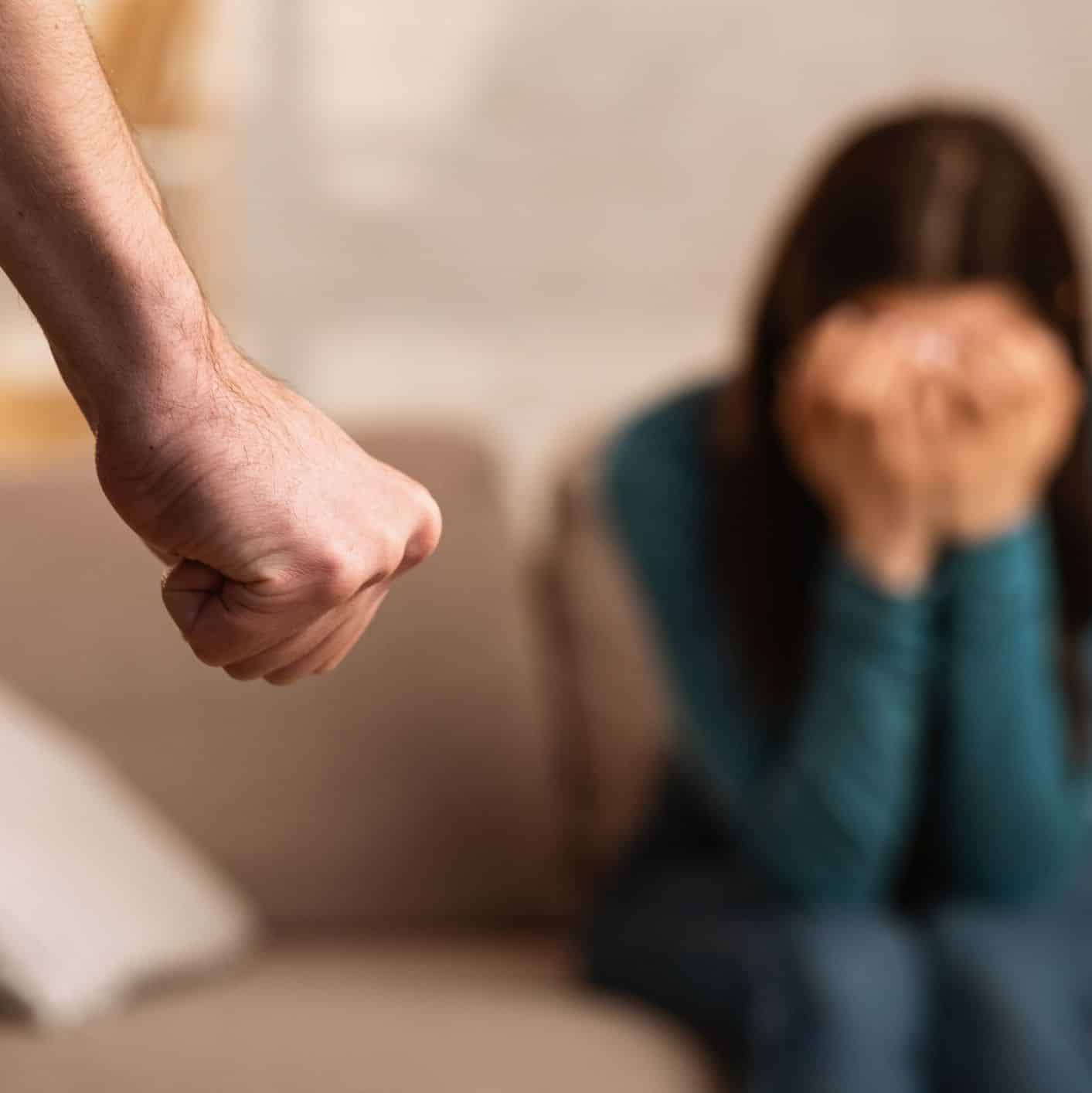Accusations of domestic violence and domestic battery can cost you your marriage and your job, damage your reputation, and result in hefty fines and jail time. You need to take these accusations seriously and contact a Riverside criminal defense lawyer to protect your rights.
Every relationship is unique and has its ups and downs. When a couple finds themselves engaged in a heated argument, a concerned neighbor may call the police. Or it may be one of the partners who dials 911 and seeks police assistance when they believe their partner crossed the line. When the police arrive, the assumed perpetrator may be charged with domestic violence or domestic battery and taken into custody.
Domestic battery PC 243(e)(1) & domestic violence PC 13700 are commonly misunderstood in California. At Gressley & Donaldson, we are well-versed in domestic violence laws and strive to provide responsive and accessible counsel to those who have been charged with domestic battery and domestic violence. Our law firm is dedicated to protecting the rights and freedom of every client we represent because we believe people facing criminal charges deserve to be treated as innocent until proven guilty.
When you find yourself facing domestic violence or domestic battery charges, you need a reputable and skilled lawyer to help you navigate the criminal justice system. The team at Gressley & Donaldson is here to help. Keep reading to learn everything you need to know about domestic battery and violence charges under California criminal law.

How Does California Define Penal Code 243(e)(1) PC Domestic Battery?
California Penal Code 243(e)(1) PC defines “domestic battery” – sometimes referred to as spousal battery – as any intentional and unlawful physical contact that offends or causes harm to the accused person’s:
- Current or former spouse;
- Current or former fiancé;
- Current or former cohabitant;
- Mother or father of their child; or
- Any individual with whom the accused currently has or used to have a dating (romantic) relationship.
Under California law, you can be convicted of domestic battery under PC 243(e)(1) if all of the following elements are met:
- The offender used unwanted or unlawful physical contact, no matter how slight;
- Against a person who falls into any of the above-mentioned categories; and
- Causes harm, injuries, or no injury at all.
The alleged offender can be convicted of domestic battery even if they did not cause any pain or visible injury to the alleged victim. Even the slightest, non-injurious contact may constitute “battery” when it is done in an offensive or violent manner. For this reason, allegations of domestic battery often result in an automatic arrest even in the absence of concrete evidence proving the alleged offender’s guilt.
Are There Legal Defenses to Domestic Violence Charges?
California Penal Code 13700 PC defines the term “domestic violence” and explains what constitutes “abuse” to be charged under this section. Under the law, a person commits abuse when they intentionally or recklessly:
- Attempt to cause serious bodily injury;
- Cause serious bodily injury; or
- Place the victim in reasonable apprehension of imminent serious bodily injury.
Such abuse becomes “domestic violence” under PC 13700 when the alleged victim and the offender:
- Are current or former spouses;
- Are current or former cohabitants;
- Share children together; or
- Currently have or used to have a dating (romantic) or engagement relationship.
California Penal Code has a separate statute – “corporal injury to a spouse or cohabitant” under California Penal Code section 273.5 PC – that makes it a crime to cause physical injuries to anyone who falls into one of the above-mentioned categories through an act of domestic violence. However, if the injury was caused during an innocent accident and the person who caused the injury to the alleged victim did not act intentionally or recklessly, the incident will generally not lead to domestic violence charges.
What Is the Difference Between Domestic Battery And Domestic Violence?
Many people use the terms “domestic battery” and “domestic violence” interchangeably, but, as we have explained above, domestic battery PC 243(e)(1) & domestic violence PC 13700 charges refer to two different things.
Notably, no visible injuries indicating physical abuse are required to charge a suspect under PC 243(e)(1). As long as it can be proven that the offender acted in an offensive or violent manner, it is not necessary that the victim suffers bodily injury from the contact. Domestic violence PC 13700, on the other hand, requires that the offender either causes or attempts to cause serious bodily injury to the victim or places them in reasonable apprehension of imminent serious bodily injury. Let’s review two examples:
- Example #1. A husband and wife get into a heated argument. At one point, the husband grabs his wife’s wrists in a violent manner. The incident did not cause any injury to the wife, not even bruises, but the husband could still be charged with domestic battery under PC 243(e)(1) because he touched his wife in a violent manner.
- Example #2. A husband and wife get into a heated argument. At one point, the husband pushes his wife to the ground. The wife hits her head and suffers a concussion. The incident will most likely qualify as domestic violence under PC 13700 and result in charges under PC 273.5.
Our legal team at Gressley & Donaldson can help you make a distinction between domestic battery and domestic violence and prepare a defense strategy to dispute the allegations of abuse or battery in your case.
How Does the Prosecution Prove Domestic Battery & Domestic Violence?
In order to convict someone of domestic battery or domestic violence under California law, the prosecution must prove these three elements:
- The defendant and the alleged victim are current/former spouses, cohabitants, fiancés, dating partners, or share children together;
- The defendant (a) made unlawful contact with the alleged victim (domestic battery PC 243(e)(1)) or (b) caused or attempted to cause serious bodily injury to the victim or placed them in reasonable apprehension of imminent serious bodily injury (domestic violence PC 13700); and
- The defendant acted intentionally or recklessly (the incident was not an innocent accident).
Keep in mind that the prosecutor does not need to prove that the alleged victim suffered a visible injury to convict the defendant of domestic battery. The prosecution can secure a conviction as long as the defendant is acting in an offensive or violent manner.

Defense Strategies to Domestic Battery & Domestic Violence Charges
When it comes to facing domestic battery PC 243(e)(1) & domestic violence PC 13700 charges, the burden of proof falls on the prosecutor. The defendant, in his or her defense, can employ a defense strategy to either disprove the allegations entirely or mitigate charges and penalties.
At Gressley & Donaldson, we work to help clients develop legal defense strategies tailored to their unique circumstances. Some common defenses to domestic battery and domestic violence charges are:
- Self-defense. You cannot be guilty of domestic battery or domestic violence if you used force or acted in an offensive or violent manner to defend yourself. However, your response must be proportionate to the level of immediate threat of harm.
- Defense of another person. The prosecutor cannot secure a domestic violence/battery conviction if you can prove that you were acting in defense of another person, such as your kids.
- False accusations. You cannot be convicted of domestic violence or battery if you have been falsely accused and the “incident” never happened or the accuser’s allegations were exaggerated.
- Lack of evidence. The prosecution may not be able to prove your guilt if there is not enough evidence (e.g., a record of an emergency call, witness statements, signs of injury or struggle, etc.) in the case.
- No willful act. If you did not act recklessly or intentionally and did not intend to cause harm in the alleged incident of domestic violence or battery, you cannot be convicted.
This is a non-exhaustive list of possible defense strategies when facing domestic battery and domestic violence charges. The viability and effectiveness of each defense depends on the specific facts of your case, which is why you might want to work with a lawyer when building a case. The lawyers at Gressley & Donaldson can evaluate the details of your case and identify the most effective defense strategy.
Penalties for Domestic Battery and Domestic Violence in California
In most cases, domestic battery under PC 243(e)(1) is a misdemeanor punishable by a fine of up to $2,000 and/or a maximum of six months in jail. By contrast, corporal injury to a spouse or cohabitant under PC 273.5 – a form of domestic violence PC 13700 – is a “wobbler” offense, which means the prosecution can pursue it as either a misdemeanor or a felony depending on the severity of the victim’s injury, the offender’s criminal history, and the facts of the case. Possible penalties for a misdemeanor or a felony under PC 273.5 include:
- Misdemeanor: a fine of up to $6,000 and/or up to one year in county jail.
- Felony: a fine of up to $6,000 and up to four years in state prison.
If a domestic violence charge is prosecuted as a felony, the defendant could also face other consequences upon a conviction, including:
- The loss of the right to own and possess a firearm;
- The loss of a professional license; and
- Being subjected to a restraining order.
Under AB 3129, which went into effect on January 1, 2019, the loss of gun rights triggered by either a misdemeanor or a felony conviction related to domestic violence crimes is a lifetime ban. Before the legislation, misdemeanor convictions resulted in a 10-year firearm prohibition.
Domestic Battery PC 243(e)(1) & Domestic Violence PC 13700 Frequently Asked Questions
Domestic violence includes physical harm, threats, harassment, or any behavior that causes fear of injury to a current or former spouse, partner, significant other or household member.
Penalties range from fines and probation to jail or prison time, depending on the severity, prior offenses, and whether a weapon was involved.
First-time offenses may involve misdemeanor charges, potential diversion programs, probation, and mandatory counseling or community service.
PC 243(e)(1) defines domestic battery as willful physical contact that is harmful or offensive to a spouse, cohabitant, or partner, and is typically charged as a misdemeanor.
PC 273.5 involves inflicting a traumatic injury on a spouse, cohabitant, or partner, and can carry felony charges with jail or prison time.
Lawyers may challenge credibility, bias, investigate evidence, question witnesses, seek diversion, and present legal defenses to protect clients from wrongful convictions.
Restraining orders prohibit contact between alleged abusers and victims, and violations can lead to criminal penalties including arrest.
Probation may include counseling, anger management classes, community service, regular check-ins with a probation officer, and restrictions on contact with the victim.
Individuals convicted of domestic violence are prohibited from owning, possessing, or purchasing firearms under state and federal law.
Convictions can affect visa status, green cards, and naturalization, potentially leading to deportation or inadmissibility.
Depending on the circumstances, first-time offenders may receive probation, counseling, or diversion programs without incarceration.
Yes, DV allegations can significantly impact custody and visitation, with courts prioritizing child safety in custody decisions.
Remain calm, avoid contact with the alleged victim, document your side of the story, and immediately consult an experienced defense attorney.
Gressley & Donaldson, LLP has extensive experience defending domestic violence cases, providing strategic legal guidance, aggressive representation, and personalized defense to protect your rights, freedom, and reputation.
Gressley & Donaldson: Top Riverside Domestic Violence & Domestic Battery Defense Lawyers
Accusations of domestic battery or domestic violence can change your life in an instant, and not in a good way. It is crucial to have a reliable and skilled Riverside criminal defense attorney when it comes to defending yourself against domestic battery PC 243(e)(1) & domestic violence PC 13700 charges.
At Gressley & Donaldson, we understand the delicate nature of cases involving allegations of domestic battery or domestic violence and are committed to providing a client-focused and zealous representation to Californians facing these accusations. You can rely on our team to listen to your side of the story and help you mount a defense strong enough to cast doubt on the prosecution’s case against you. Contact our law office today to receive a case evaluation.


